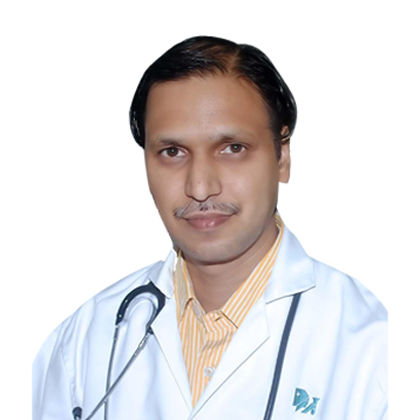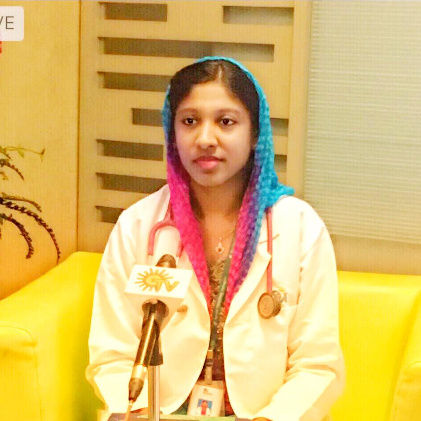Galactosemia Overview and Treatment Options
Learn about galactosemia, a rare genetic disorder affecting sugar metabolism, including its symptoms, diagnosis, and available treatment options for effective management.

Written by Dr. J T Hema Pratima
Reviewed by Dr. D Bhanu Prakash MBBS, AFIH, Advanced certificate in critical care medicine, Fellowship in critical care medicine
Last updated on 26th Aug, 2025

Galactosemia is a rare genetic disorder that affects how the body processes a sugar called galactose, which is found in milk and dairy products. Normally, our bodies break down galactose into glucose (a simple sugar used for energy). However, in people with galactosemia, this process doesn’t work properly, leading to a harmful buildup of galactose in the body.
This condition is present from birth and can cause serious health problems if not managed early. The good news is that with the right diet and care, individuals with galactosemia can lead healthy lives.
Types of Galactosemia
There are three main types of galactosemia, depending on which enzyme is missing or not working properly:
1. Classic Galactosemia (Type I) – The most severe form, caused by a deficiency of the enzyme GALT.
2. Galactokinase Deficiency (Type II) – A milder form, caused by a lack of the enzyme GALK.
3. Epimerase Deficiency (Type III) – A rare form where the enzyme GALE is affected.
Classic galactosemia is the most common and requires strict dietary management.
Consult a Top Specialist
Symptoms of Galactosemia
Symptoms usually appear within a few days after birth when a baby starts consuming breast milk or formula containing lactose (a sugar that breaks down into galactose). Common signs include:
Poor feeding (baby refuses milk)
Vomiting and diarrhea
Jaundice (yellowing of skin and eyes)
Lethargy (extreme tiredness)
Swelling in the liver (hepatomegaly)
Low blood sugar (hypoglycemia)
Increased risk of infections
If untreated, galactosemia can lead to serious complications like liver damage, kidney problems, cataracts (cloudy vision), and intellectual disabilities.
Causes and Diagnosis
Galactosemia is an inherited condition, meaning it is passed down from parents who carry the faulty gene. A baby must inherit two copies of the defective gene (one from each parent) to develop the condition.
How is Galactosemia Diagnosed?
1. Newborn Screening Test – Most hospitals test for galactosemia shortly after birth using a heel-prick blood test.
2. Genetic Testing – Confirms the specific enzyme deficiency.
3. Urine Test – Checks for high galactose levels.
If your baby shows symptoms or has a positive screening test, doctors will recommend further testing to confirm the diagnosis.
Treatment and Management
There is no cure for galactosemia, but it can be effectively managed with dietary changes and regular medical monitoring.
1. Dietary Changes (Lifelong Requirement)
The most important treatment is eliminating galactose from the diet. This means avoiding:
Milk and dairy products (cow’s milk, cheese, yogurt, butter)
Breast milk (babies need special lactose-free formula)
Foods containing lactose or galactose (read ingredient labels carefully)
Safe alternatives include:
Soy-based formula (for infants)
Plant-based milk (almond, coconut, or rice milk)
Calcium and vitamin D supplements (to compensate for missing nutrients)
2. Regular Medical Checkups
People with galactosemia should have:
Liver and kidney function tests
Eye exams (to check for cataracts)
Growth and development monitoring (especially in children)
3. Supportive Care
Speech and occupational therapy (if developmental delays occur)
Genetic counseling (for families planning future pregnancies)
Living with Galactosemia
With proper management, individuals with galactosemia can live healthy lives. Here are some helpful tips:
Read food labels carefully – Avoid hidden sources of galactose (like casein, whey, or curds).
Educate family and caregivers – Ensure everyone knows which foods are safe.
Connect with support groups – Talking to others with galactosemia can provide emotional support.
Stay in touch with your doctor – Regular follow-ups help prevent complications.
When to See a Doctor?
If your baby shows symptoms like vomiting, jaundice, or poor feeding after consuming milk, seek medical help immediately. Early diagnosis and treatment are crucial to prevent serious health issues.
Need Help? Book a Consultation with Apollo24|7
If you suspect galactosemia or need dietary guidance, Apollo24|7 offers expert consultations and diagnostic tests. You can:
Schedule a pediatric consultation
Get genetic testing done
Speak with a nutritionist
Final Thoughts
Galactosemia is a lifelong condition, but with the right care, individuals can thrive. If you or your child has been diagnosed, remember that early intervention and strict dietary management are key to staying healthy. Stay informed, follow medical advice, and don’t hesitate to seek support when needed.
Consult a Top Specialist
Consult a Top Specialist

Dr. Swathi Reddy Perugu
General Physician/ Internal Medicine Specialist
7 Years • MBBS, MD (General Medicine)
Hyderabad
Health plus, Hyderabad

Dr. Rajib Ghose
General Practitioner
25 Years • MBBS
East Midnapore
VIVEKANANDA SEBA SADAN, East Midnapore

Dr. Rama Narasimhan
General Physician/ Internal Medicine Specialist
20 Years • MBBS, MD
Chennai
Apollo Hospitals Greams Road, Chennai

Dr. Vijay Kumar Shrivas
General Physician/ Internal Medicine Specialist
20 Years • MBBS, DNB - General Medicine Internal Medicine
Bilaspur
Apollo Hospitals Seepat Road, Bilaspur
(75+ Patients)

Dr. Afreen Banu Khan
General Physician/ Internal Medicine Specialist
8 Years • MBBS, DDM (Diab). FCC (Cardio)
Chennai
Apollo Speciality Hospitals OMR, Chennai




